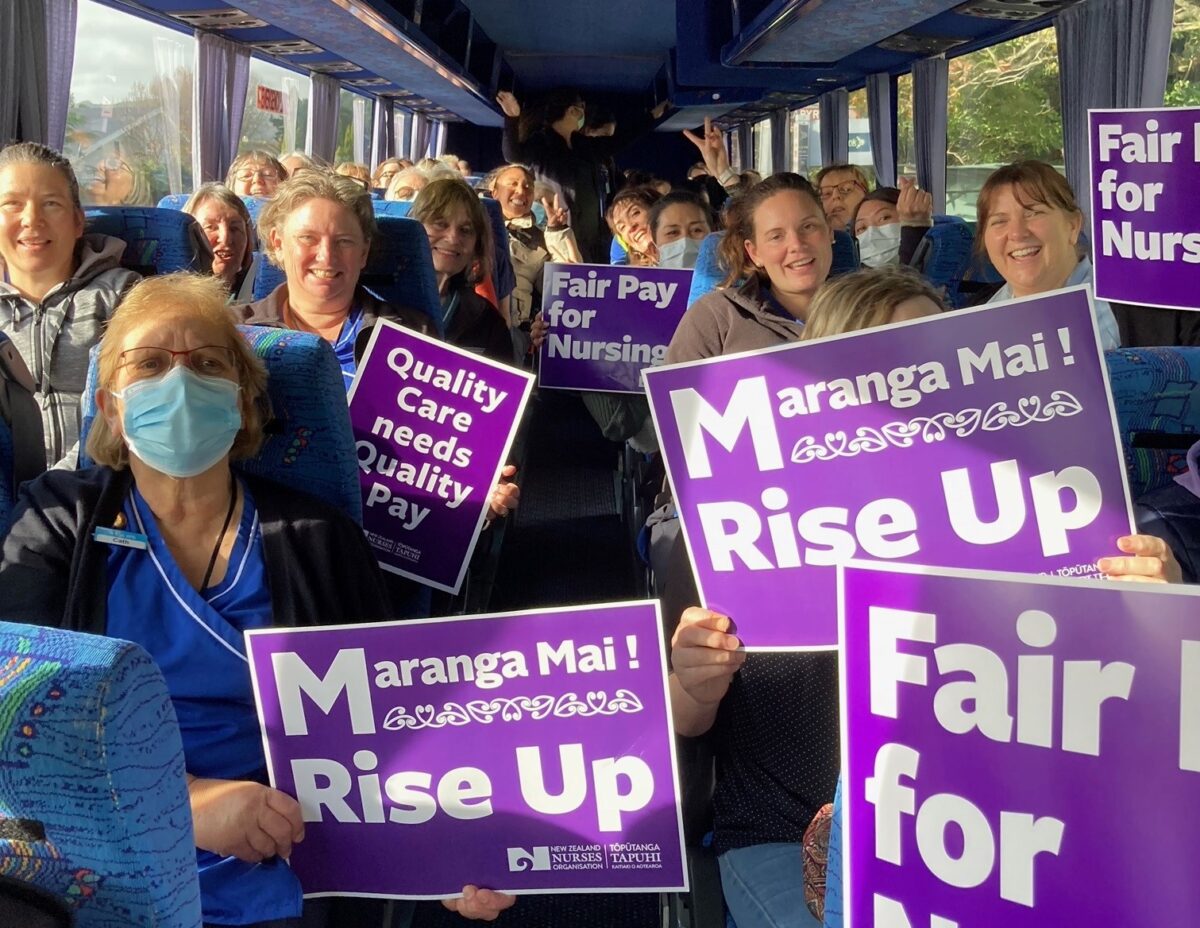In a vote, 98 per cent of NZNO members who attended stop-work meetings voted for a return to the negotiating table. “I think the other two per cent must have accidentally ticked the wrong box”, Keneperu delegate Rose Reed told Kaitiaki Nursing New Zealand.
‘They had this awesome opportunity, they could have really run with — they could have set themselves off on the right foot as an organisation and I think that’s really disappointing.’
Bargaining for a new two-year collective agreement between NZNO and Te Whatu Ora has been underway for much of this year. Te Whatu Ora has so far proposed a $4000 increase to all base salaries from April 1, with another three per cent or $2000 (whichever is higher) from April 1, 2024. This proposal for an offer was not formalised and put out for ratification to members.
The proposal did not accept several NZNO claims such as:
- addressing senior nurses’ pay relativity to the newly expanded registered nurse (RN) scale.
- ratio-based minimum staffing levels in all areas, which can be built upon using safe staffing system CCDM (care capacity demand management).
- improving health and safety conditions.
- extra payments for extra shifts due to staff shortages.
- a tikanga allowance for staff who use their te ao Māori knowledge to support cultural obligations.
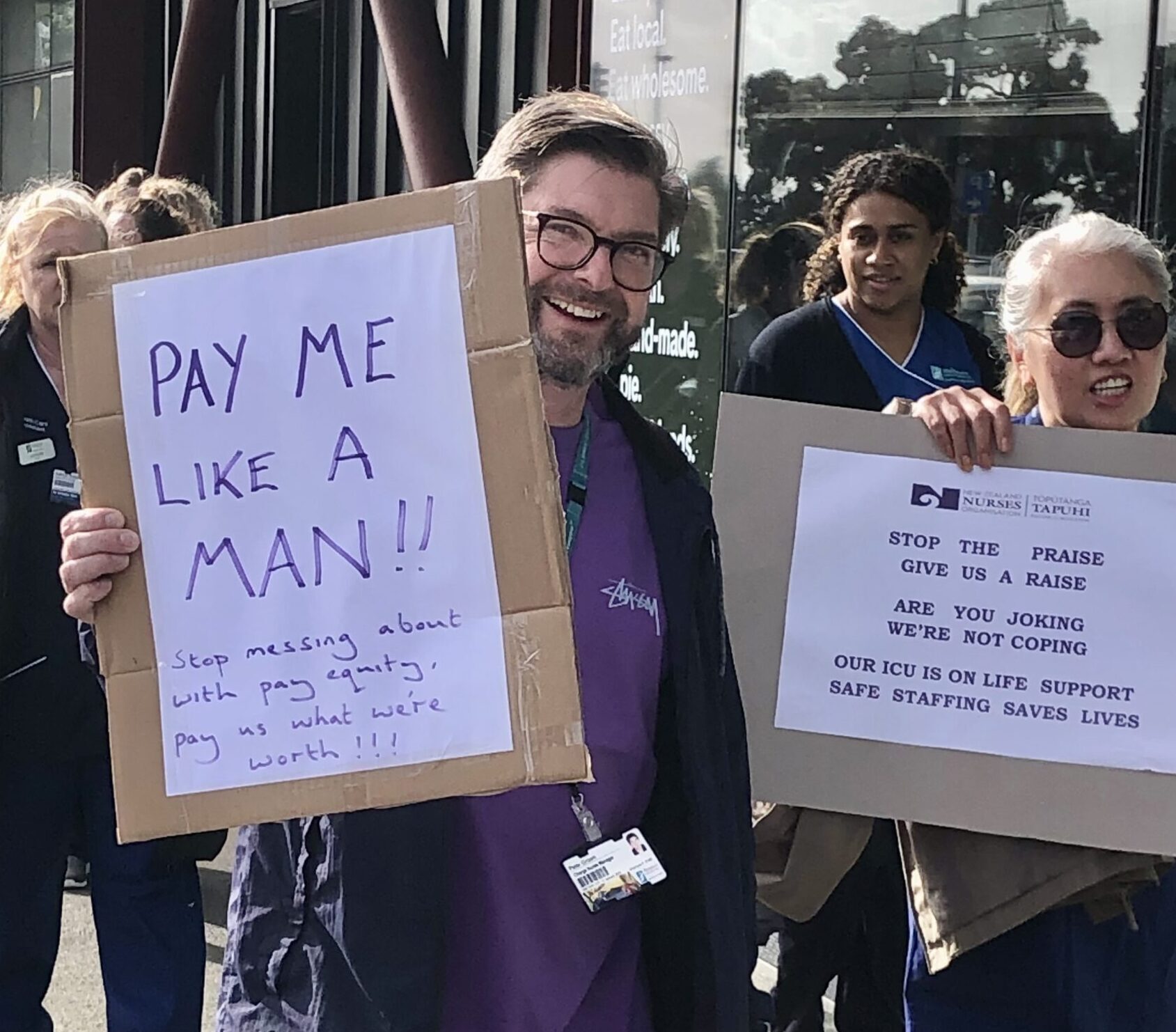
Nor did its proposed offer include back pay to October 31, 2022, when the collective expired, or adequately address the high cost of living, NZNO’s summary said.
Details of NZNO’s claims can be found here.
NZNO said the proposed offer failed to address the urgent needs of members. Without progress on its claims, “members will decide on necessary actions to achieve an acceptable settlement”, NZNO stated in a member-endorsed resolution.
Wellington Hospital delegate Hilary Gardner said nurses were feeling disappointed, undervalued and angry by the proposed offer, which had ignored NZNO’s safer staffing claims. They would not rule out “strike action of some kind”, she said. “The main kick is there is just so little movement, on any of our issues.”
Te Whatu Ora had refused to engage on half the issues, “and those they have . . . they have responded to incredibly poorly and almost with insult”, Gardner said.
“A lot of people are feeling insulted. Everyone’s so tired – tired of fighting for ourselves.”
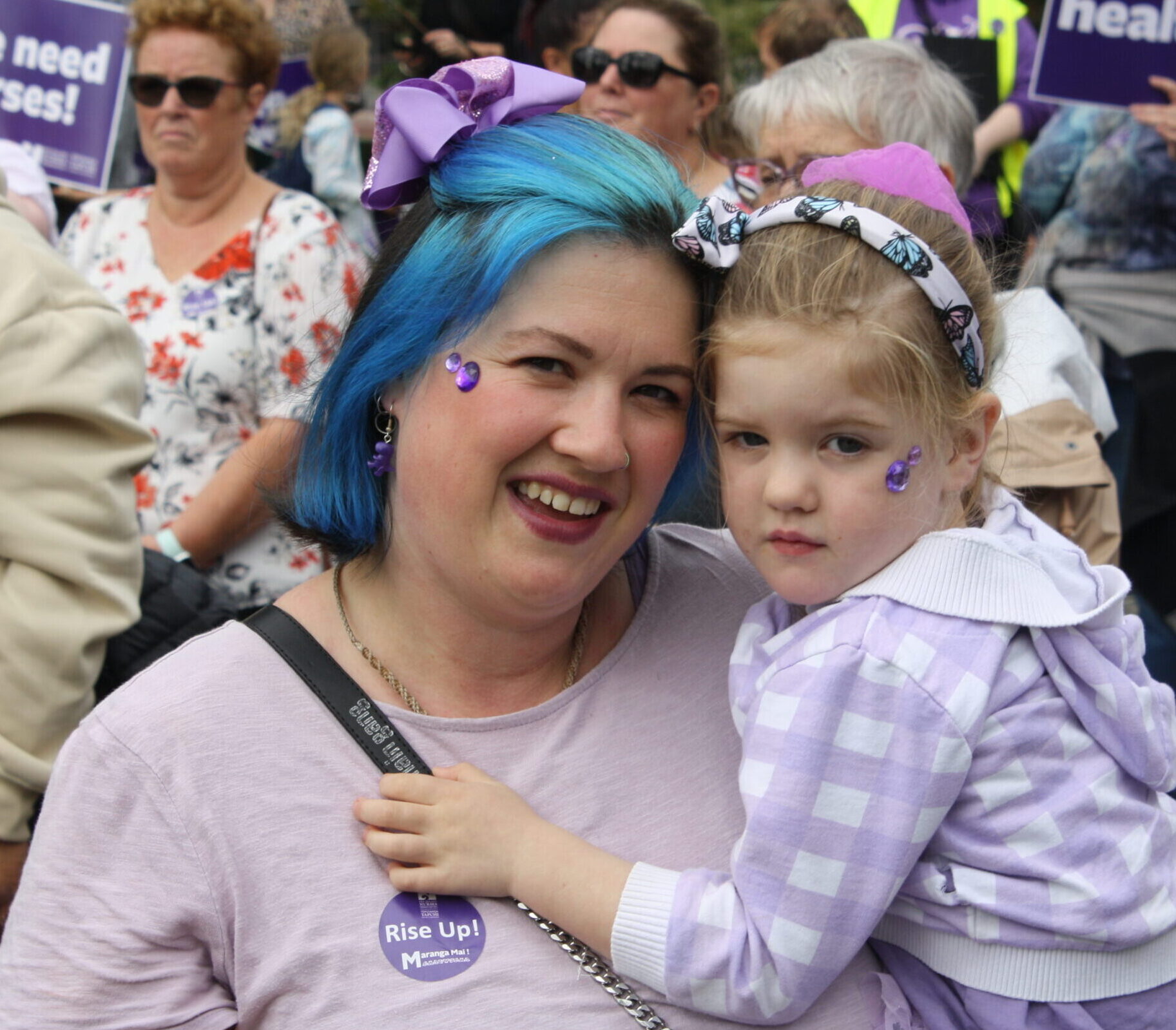
Workers wanted an offer that showed Te Whatu Ora valued them as people – “our wellbeing, our work-life balance [as well as] reimbursing us for the work we do”, she said.
‘We will not rule out strike action of some kind.’
“We will be resolute – we expect recognition. Not just in terms of pay but to be valued as important and critical components of the organisation.”
Missed opportunity
The historic first bargaining round with a single employer instead of 20 district health boards had been a missed opportunity for Te Whatu Ora to connect with its workers in an “open, honest and transparent” way, Gardner said.
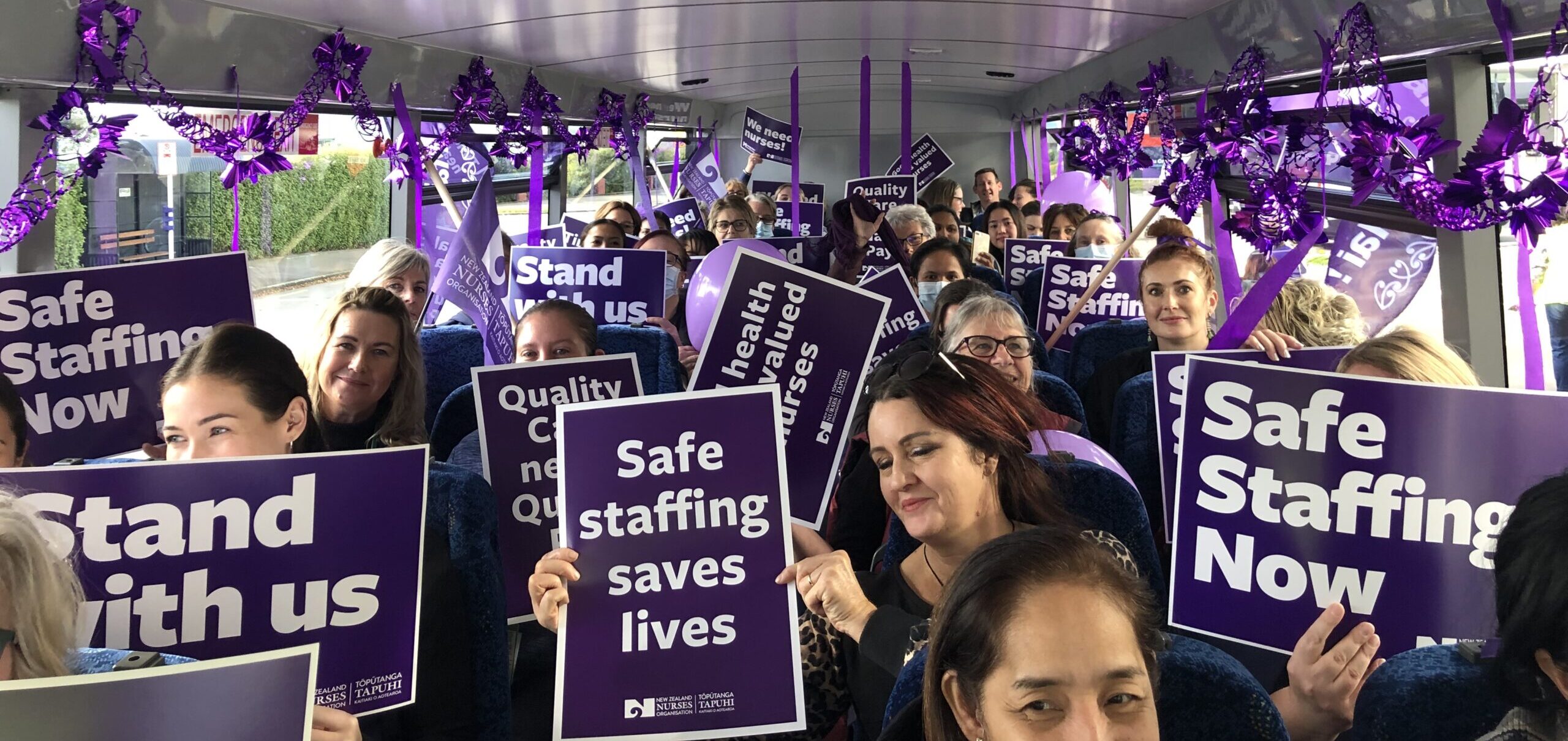
“They had this awesome opportunity, they could have really run with — they could have set themselves off on the right foot as an organisation and I think that’s really disappointing.”
Turnout shows ‘strength’
Thousands of nurses, midwives, health-care assistants (HCAs) and kaiāwhina turned out last week to 58 packed-out stop work meetings around the country 29 May – 2 June to discuss the proposal for an offer in what NZNO president Anne Daniels said was a “visible sign of strength”.
Many described being burned out from relentless short-staffing which left them struggling to provide adequate care to patients, fearing mistakes would cost them their practising certificates or patient lives.
Hutt Hospital registered nurse (RN) and NZNO Te Poari Greater Wellington representative Naomi Waipouri said the proposed offer made nurses feel “worthless”.
“Australia is looking really good right now.”
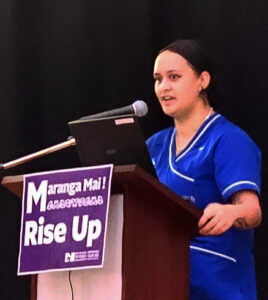
Waipouri said members had been asking for safer staffing for “numerous years” and had not been listened to.
“It’s a mental struggle to get up and go to work these days, because you just don’t know what you will be faced with, or you don’t know if there’s going to be any support behind you.”
Many nurses — senior nurses especially — seemed keen to take strike action, Waipouri said.
Kenepuru Hospital district nurse and delegate Rose Reed said district nurses appeared to have disappeared from the negotiations completely. “We weren’t there — we simply vanished,” she said.
“They lost a group of nurses – we’re not even being offered a pay rise because we don’t exist.”
Te Whatu Ora Waitaha (Christchurch) NZNO delegate Al Dietschin agreed members were burned out and “not in the mood to accept a [proposed] offer that does not value them or address their dangerous workplaces”.
Te Whatu Ora Te Toka Tumai (Auckland) delegate Ben Basevi said dissatisfaction with the proposed offer had been “resoundingly unanimous”.
Negotiations resume today.



